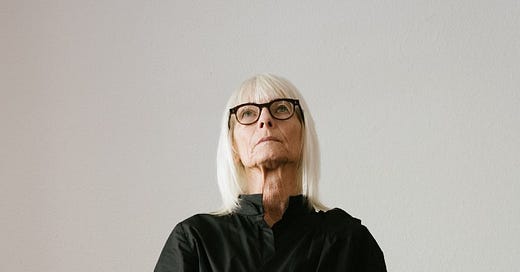
I have a friend who lives in Porto, Portugal, she asked me if she and her husband are too old to save for retirement.
She told me, “I’m 58 now, and my husband is 63, it’s definitely too late, isn’t it?”
Of course, the earlier you start, the better.
Because the longer your money starts to pay off for you, in old age you will live without worrying about tomorrow.
But when is it really too late and what should you keep in mind if you start later than others?
To be able to answer these questions, it is not mainly about age, but about what kind of investment fund you will choose for your old age.
The problem is: normal investment funds with guarantees hardly bring good returns. So you have to invest a huge amount to get something in the end, especially if you don’t have as much time until you retire as a 20-year-old.
In addition, many investment funds for retirement do not even compensate for inflation.
Because the guarantees and costs of the funds almost always eat up any tax advantages.
If you are looking for an investment that is also high-yielding, you can hardly avoid stocks. But there is a problem here too: investing in stocks is super risky if you only own a few individual stocks.
That’s why global investment funds are a much better choice. They are huge pots containing, for example, thousands of assets. This spreads the risk enormously and you don’t have to bet on individual companies, which by the way are riskier.
One thing is extremely important when investing
Based on historical data, what is invested should not be used for at least 10 to 15 years from the time of investment.
Because fund prices also fluctuate, and of course, there are always temporary drops in the world market.
In the worst-case scenario, you would only have a positive return after 15 years. What sounds dramatic now is not so crazy: because this worst-case refers only to the savings rate that was invested at the worst possible time.
Usually, you put money into your investment funds every month, or at different times, and earn at different times too.
You won’t need all your assets when you retire, but you will probably pay a monthly pension little by little or take more out of it from time to time for travel or for an emergency.
So it doesn’t have to be all your assets at the time you retire, but only the first deposits should have been made long ago. And as I said, this is only the case in the worst-case scenario.
Bottom line: For my friend who lives in Porto, Portugal, who is already 58 years old, it is definitely not too late. If she considers the following:
You should definitely start now.
And that has to do with compound interest.
To understand it better, let’s look at an example, of course, based on historical data:
If you invest only $100 a month, but for more than 35 years, you already have a fortune of $97,808 — after costs, taxes, and inflation! But if you invest just one year more or 36 years in total, that’s $103,809 (of course also after costs, taxes, and inflation).
Your last year of savings alone brings you another $6,000 — net and adjusted for inflation.
$4,801 of that is pure annual profit, that is, without your $1,200 deposit for the year.
That is the power of compound interest.
And, it means that if you start later, you will also need to invest more money than those who started earlier. Logic, bro.
There is no general answer to when it is really too late to save for retirement. And it depends on how much money you can still invest in the remaining time.
As a general rule regarding the risk of investment funds, one can definitely state:
If you are not yet in your 50s, meaning you still have at least 15 years until you retire, you can definitely still get started.
With your retirement approaching, it would be important to have a cash reserve for the first few years of retirement until you can safely start saving your investment funds.
Still, it is not too late for the system.



